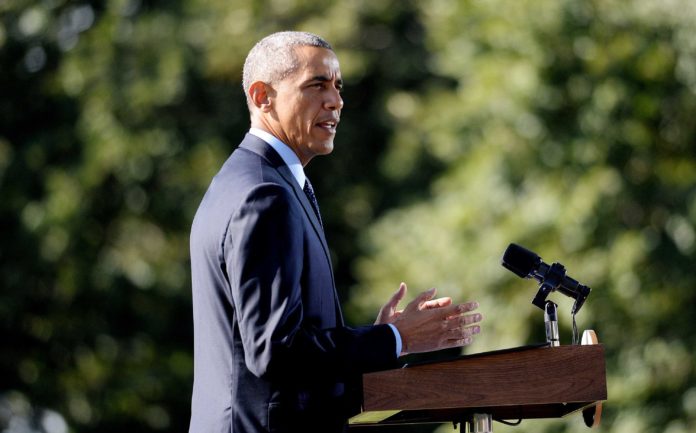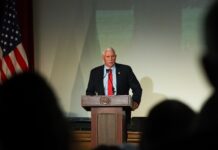University professors voiced their opinions on the terrorist organization ISIS, the Islamic State of Iraq and Syria, during a roundtable discussion hosted by the Slippery Rock Amnesty International Club Thursday evening.
The event was held in the Spotts auditorium and consisted of a panel of six Slippery Rock professors and one veteran of the Iraq war.
Dr. Eric Tuten, history, introduced the topic by explaining the relationship between ISIS and Al Qaeda.
ISIS, a Sunni group, first began its terroristic actions by targeting American troops and Shi’a Muslims during the American invasion of Iraq in 2003, Tuten said. ISIS eventually merged with Al Qaeda, he continued, but the merger was short-lived, as Al Qaeda disagreed with ISIS’s policy of killing other Muslims.
Dr. Kent Schull, assistant professor of history at SUNY Binghamton University, discussed the Kurds, a largely Sunni ethnic group found primarily in northern Iraq, that have taken the largest hit from ISIS’s military campaign.
He explained that ISIS does not view Iraq and Syria as legitimate states because they were established by the British after imperialism.
ISIS’s leadership does not wish to fight the Kurds, despite their resistance, Schull said, and instead wants them to join the organization.
Patrick Callahan, an Iraq war veteran who lived with the Kurds, explained that the Kurds used to control the Iraqi military until it was handed over to Shi’a leadership by the Iraqi prime minister. This caused the Kurds to “give up”, as Callahan put it, allowing ISIS to grow and take root within Iraq.
Dr. Aksel Casson, anthropology instructor in the Department of Professional Studies, discussed the refugee crisis ISIS has created, focusing on the influx of displaced people into Turkey.
“There are 40 towns in Syria that are completely deserted,” Casson said, indicating the severity of the problem, which includes 140 thousand Syrian Kurds.
“We’re worried about the bombings of the Americans,” Casson quoted from a Turkish citizen who was asked about a potential American response. “When has that ever been good?”
Dr. George Brown, political science, offered three possible solutions to the ISIS crisis.
Brown said the United States could choose to do nothing, but that would likely result in a large regional war in the Middle East. Other options included dividing Iraq into a Kurd State, a Shi’a state, and a Sunni ISIS state and the reorganization of Iraq so that all groups have equal representation under the government, he said.
During the question and answer session of the discussion, one student asked why the United States must be the force to fight ISIS, to which Callahan replied, “We’re the superpower, no one else has the force.”
Dr. Daniel McIntosh, professor of political science, said that he does not know when the ISIS situation will end, but made light of the moment by concluding “You now know more about the situation than most of Washington D.C. and you’re trying to find out more. They don’t have time for that.”








